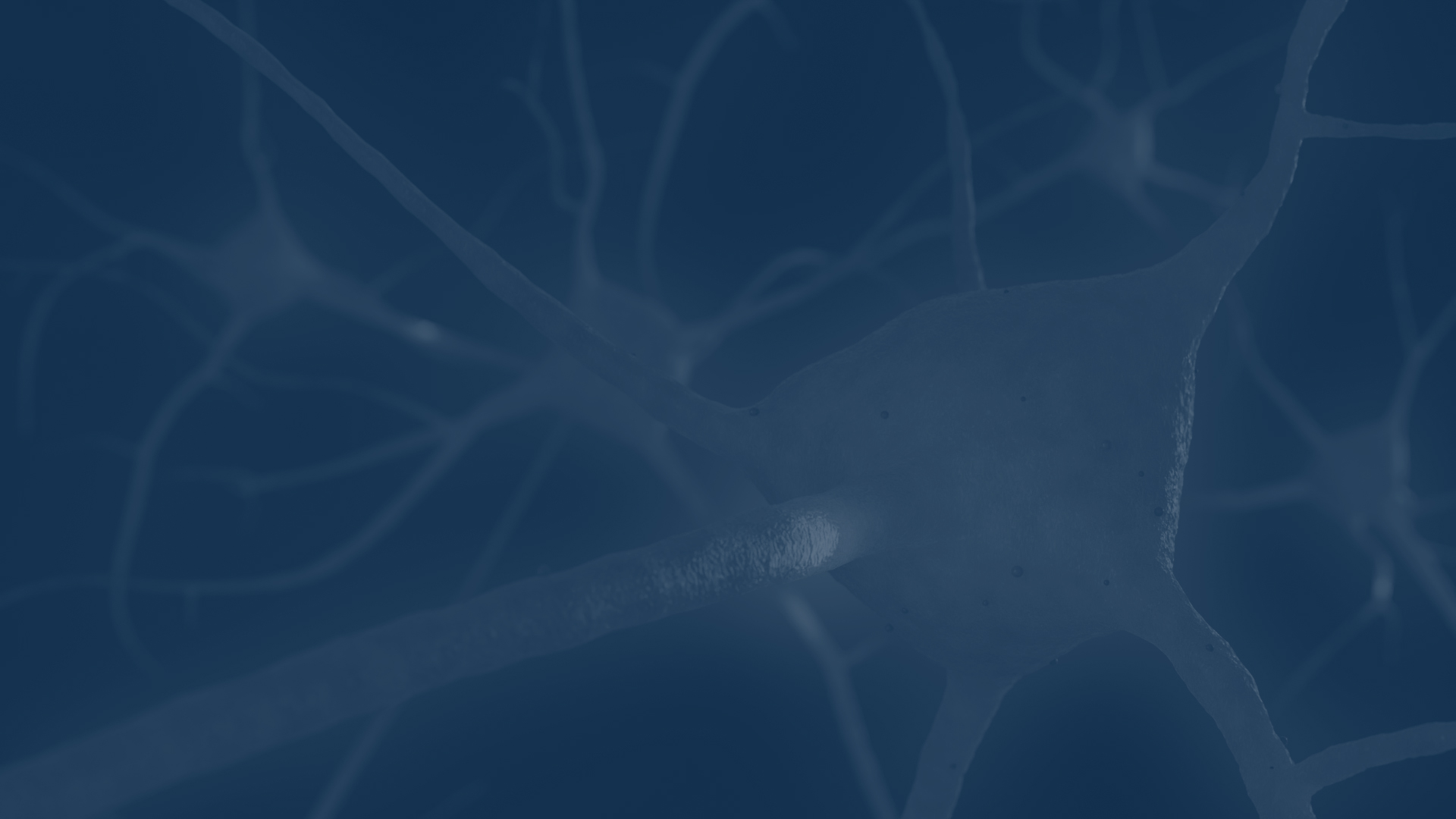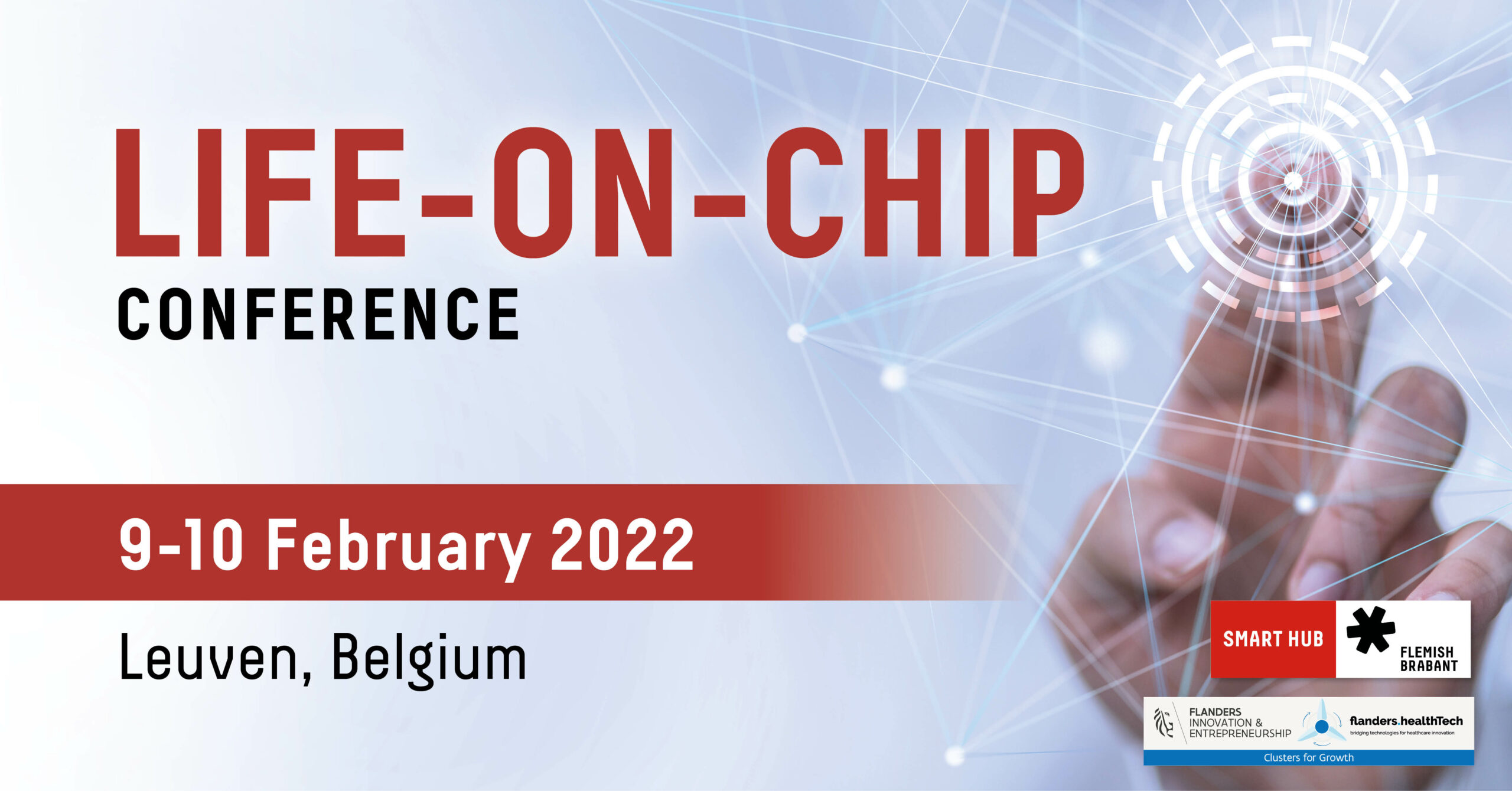
If you are curious to learn more about the latest cross-over innovations then you certainly have to attend the 4th Life-On-Chip Conference – Initiating Convergence in Health Technologies’ organised by Smart Hub Flemish Brabant and flanders.healthTech, BioWin, imec, Antleron, VIB and EIT Health.
With more than 200 participants from Europe and beyond this 4th edition promises to be very rich with top level speakers sharing their expertise covering 4 thematic sessions being increased efficiency in the healthcare system through the introduction of new technologies, solutions for patient specific treatment, digital diagnostics & therapeutics, and shifting the boundaries of knowledge at the forefront of medicine and healthcare.
Special spotlight on 3 Walloon success stories presenting at Life-On-Chip
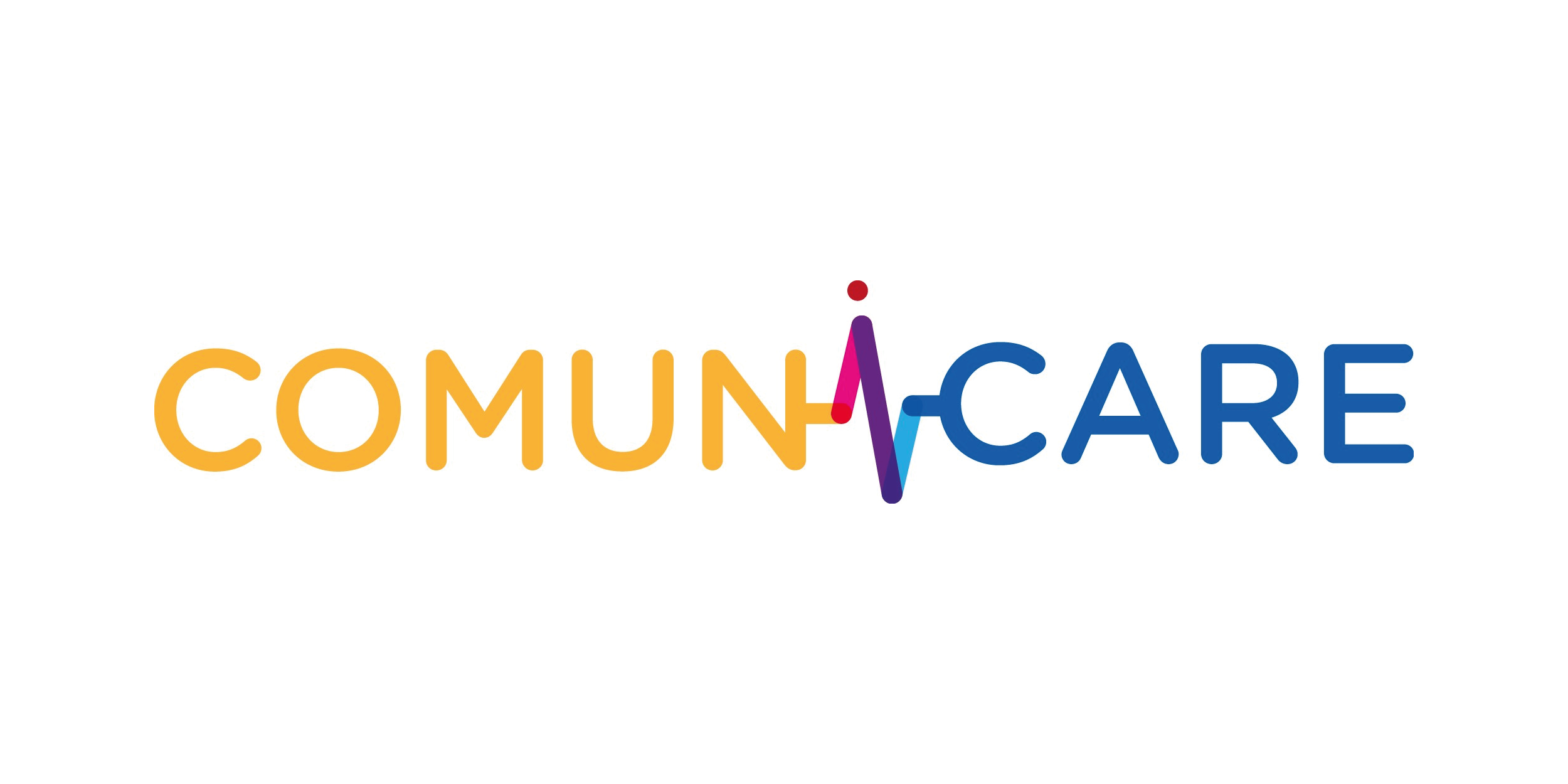
Comunicare is all about using digital companioning solutions to empower patients and support healthcare teams with actionable information. At the Life on Chip Conference, CEO Brice Van Eeckhout will focus on the preliminary results of a study recently performed by Dr Jean-Baptiste Duquenne and Dr Hélène Van Cauwenberge at the CHU of Liège in collaboration with the company on chronic respiratory disease (COPD) management.:
What is Chronic obstructive pulmonary disease?
In Belgium, an estimated 400,000 Belgians suffer from Chronic Obstructive Pulmonary Disease (COPD). A part of the burden comes from acute exacerbations episodes, which lead to a deterioration in quality of life as well as a significant consumption of medical resources.
How can Comunicare help to reduce the burden of patients and improve their quality of life?
The prevention and early detection of acute health episodes such as COPD exacerbations are helped by patient empowerment aided by education and self-management practices.
“It is in this context that telemedicine takes on its full meaning. It takes various forms, including therapeutic companioning, reinforcement of good practices, tele-consultation and home monitoring.”
Brice Van Eeckhout
The solution leverages on a mobile application for patient self-management and a follow-up dashboard for caregivers which provides data and analytics based on patient-reported outcomes (e.g. i.e. vital signs, symptoms, and experience).
More insights on the solution will be explained at the upcoming Life-On-Chip conference. To follow Brice’s presentation, you can still register here and sign-up for session 3 on Digital Medicine on 10th February from 14:00-15:00h., title of the presentation: Self-Reported Data to Enable Timely Care and Improve Healthcare Outcomes for Patients with COPD.
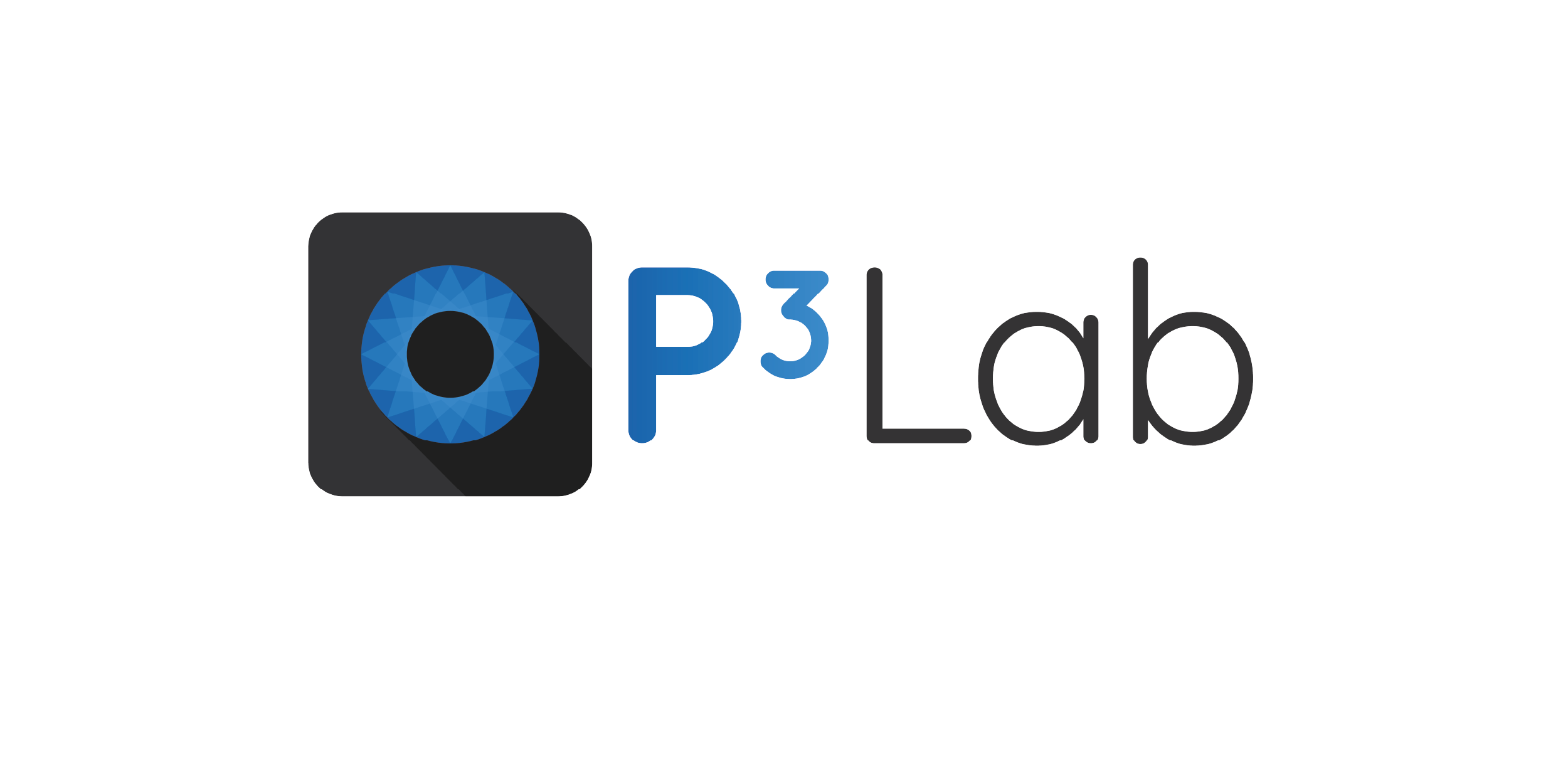
P3Lab’s mission is to help the practitioner instantaneously quantify his clinical exam based on a portable laboratory, NeuroClues, using eye tracking. During his presentation at the LoC conference Antoine Pouppez, CEO & founder will talk about “The importance of objective quantification in neurological diseases diagnosis and follow-up. He will use a case study to demonstrate how eye tracking is used for Parkinson syndrome
How many people are affected by neurological disorders?
Hundreds of millions of people are affected by neurological disorders worldwide with an added 7.7 million new cases every year.
Neurological diseases are difficult to diagnose as multiple diseases can start with similar behavioral symptoms and our central nervous system has adaptive mechanisms that mask some of the effects of the disease.
Currently, neurological diagnosis tools are either very expensive (e.g MRI), very complicated to use (e.g. electroencephalogram) or not specific enough. Therefore, there are a lot of uncertainties surrounding a neurological diagnosis which means that more than 300 days could last between the initial suspicions and the diagnosis.
What is the solution P3Lab is developing?
P3Lab’s team developed a solution, NeuroClues, that brings eye tracking from research to the clinic: it will extract key biomarkers based on eye tracking to allow the practitioner to discriminate between the most common neurological disorders. A history of those marker’s evolution will help him/her objectively track the evolution of their patients.
“You can identify neurological diseases years before symptoms are visible and follow their progress objectively. Our eyes are a window to our brain’s health.”
Antoine Pouppez
Follow Antoine’s presentation on 10th February at session 1: Value based efficient healthcare from 10:30-11:30, register here.
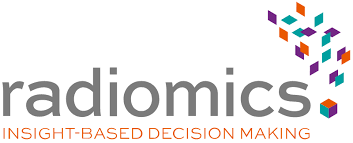
Radiomics is a next generation imaging research organization built upon the unparallel experience of its founders, pioneers of the radiomics science. Radiomics’ ultimate goal is to support insight-based decision making for optimizing pharmaceutical and biotech companies’ clinical trials and drug development studies.
“We want to provide clinicians with a patient-centered approach based on personalized medicine.”
Wim Vos
Personalized medicine or lesion-based for solid tumor care?
When only 15 to 20% of patients with solid tumors have durable responses to existing immune checkpoint inhibitors and 95% of the targeted therapies fail in development there is a true added value of using the power of AI to deliver accurate and robust clinical decision support systems based on the standard clinical imaging.
How can Radiomics help?
Radiomics focuses on AI powered healthcare, with a unique expertise in Deep Learning & Federated Learning applied to oncology and other therapeutic areas. Through its proprietary advanced image analysis technology, the aim is to unravel the gold mine of hidden data information embedded in standard medical images.
“A patient with multiple tumors might require an individual approach for each of them.”
Wim Vos
More insights on this topic will be revealed by Wim Vos, CEO of Radiomics. Follow his presentation on 10th February in Session 2 – Personalised medicine from 12:00-13:00. Title of the presentation: ‘Is Personalized Medicine Really the Future in Solid Tumor Care?’ Register here.

